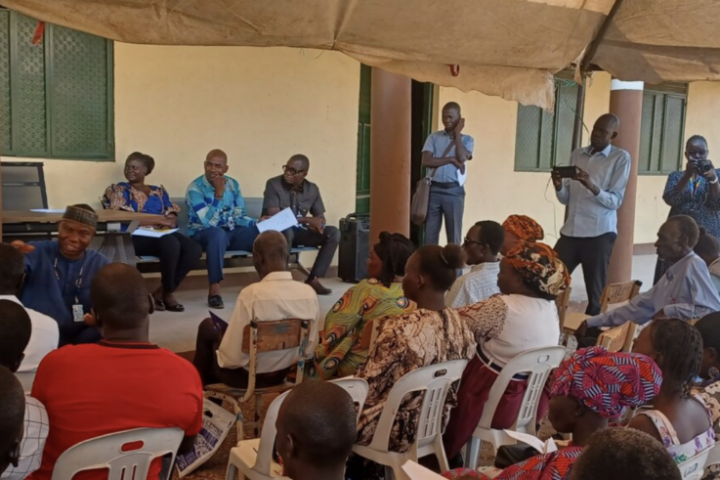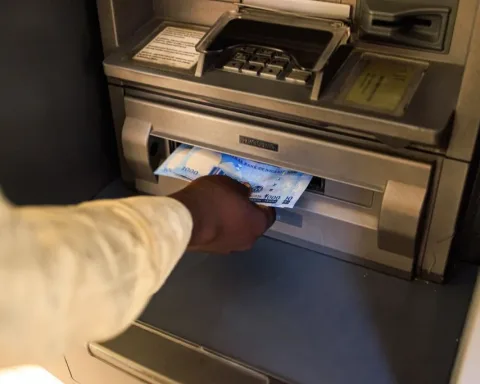Migration from Zimbabwe to Pan African countries and overseas continues to increase, with a new study finding almost 15 percent of the country’s population now has oversea Zimbabwean workers.

Over the years, thousands of Overseas Zimbabwean Workers (OZWs) have left the country for work to help improve their families’ well-being through remittances and meet personal financial goals.
Join our WhatsApp ChannelAs OZWs shoulder the significant economic responsibility of supporting family members and loved ones, they are not immune to the sky-high inflation and rising cost of living which has affected many global countries over the last few months.
By the end of 2022, Zimbabwe’s inflation rate peaked at 280%, one of the highest rates globally.
The dollar also weakened, trading at 930 ZWL to $1 USD – a steep decline after two months of relative stability at 700 ZWL to $1. The decline led to plummeting living standards in Zimbabwe, where more than half (7.9 million) people, fell into extreme poverty.
According to The Reserve Bank of Zimbabwe, the inflation rate in 2023 is expected to slow down as the government continues to tighten fiscal and monetary policies. However, the International Monetary Fund (IMF) predicted a further fall in the gross domestic product (GDP) by 3.5% in 2023 due to renewed domestic and external shocks. While inflation will likely remain high for the rest of the year, money management and budgets are increasingly important.
The following are four savings tips from leading global payments company WorldRemit.
1.Make realistic budgets
Have long-term or short-term financial goals in mind? It’s important to set goals and amounts that are achievable when creating a budget. Monthly bills, remittances, and savings all must be prioritized, but discretionary spending can be factored into budgets as well. That is, if these extras don’t go over budget.
The reason why savings are so important to one’s budget is because of its long-term value.
While it is important for Overseas Zimbabwean workers to make sure that they are making ends meet for themselves and their families, setting aside a portion of their income for the future can go a long way to making their dreams come true—whether they choose to stay overseas or return to Zimbabwe.
2.Create a savings pot
One of the simplest ways to manage money is to create a savings pot. These are specific accounts where people, especially overseas Zimbabwean workers, can portion out their savings to budget more effectively. This means, once an OZW receives their monthly pay, they can put aside money into savings and not touch it again to build interest and wealth.
3.Pay down debt
Related to tip number two, OZWs will want to consider regularly allocating a portion of their expenses to any debt they owe.
While borrowing money is sometimes necessary, it’s important to pay it off as soon as possible to prevent accruing interest and increasing debt even further.
4.Monitor exchange rates when sending money back to Zimbabwe
Sending money from overseas costs money, too. To ensure that one maximizes the amount they are sending, users should choose a service with competitive rates and minimal transaction fees.
Physical exchange services typically have low exchange rates but higher transaction fees, so it’s worth considering online alternatives. WorldRemit, for example, offers zero fees with new users’ first three money transfers.
After their first three transfers, the digital payment service continues to offer competitive exchange rates and different ways for their family to receive money in Zimbabwe.
To learn more about sending money to Zimbabwe visit: https://www.worldremit.com/en/full-calculator?amountfrom=100.00&selectto=zw&selectfrom=gb&transfer=csh¤cyto=usd¤cyfrom=gbp
About WorldRemit
We’re a leading global payments company and, along with Sendwave, part of Zepz, a group powering two global payments brands.
We disrupted an industry previously dominated by offline legacy players by taking international money transfers online – making them safer, faster and lower-cost. We currently send from 50 countries to recipients in 130 countries, operate in more than 5,000 money transfer corridors worldwide and employ over 1,200 people globally.
On the sending side WorldRemit is 100% digital (cashless), increasing convenience and enhancing security. For those receiving money, the company offers a wide range of options including bank deposit, cash collection, mobile airtime top-up and mobile money.
Backed by Accel, TCV and Leapfrog – WorldRemit’s headquarters are in London, United Kingdom with regional offices around the globe.
Written by Darryl Pietersen, Director Anglophone Africa, WorldRemit


















Follow Us